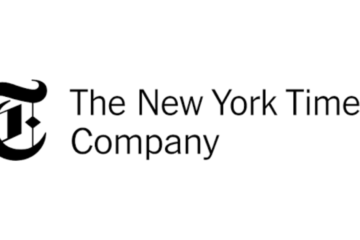HBO, or Home Box Office, is a renowned American premium cable and streaming service that has transformed the entertainment industry since its inception in 1972. Initially created by Time Inc., it became the first television network to offer commercial-free content through a subscription-based model, revolutionizing television viewing. HBO set itself apart by producing high-quality, original programming such as The Sopranos, Game of Thrones, and Westworld, earning critical acclaim and solidifying its reputation as a leader in premium content. Over time, the company adapted to the digital age with the launch of HBO Max in 2020, expanding into the competitive streaming market. Known for pushing the boundaries of storytelling, HBO has earned numerous awards, including Emmys and Golden Globes, and has made a significant cultural impact with its compelling shows. Despite fierce competition in the entertainment industry, HBO continues to thrive by focusing on innovation, creative excellence, and meeting the ever-changing demands of its global audience.
Company Information
Company Name: HBO
Founder Name: Time Inc. (Now part of Warner Bros. Discovery)
Founded Year: 1972
Headquarters: New York City, New York, USA
Products:
- Cable TV network
- Streaming platform (HBO Max)
Services:
- Subscription-based television services
- Original programming (films, documentaries, and series)
- Streaming service (HBO Max)
Competitors:
- Netflix
- Amazon Prime Video
- Disney+
- Hulu
- Apple TV+
- Peacock
- Discovery+
- YouTube
- Paramount+
- Sling TV
Company History & Growth:
- Founding and Launch: HBO (Home Box Office) was founded in 1972 by Time Inc. as one of the first premium cable television services, offering exclusive content without the interruptions of traditional advertising.
- Pioneering the Pay-TV Industry: In 1975, HBO became the first television network to broadcast a live event, the “Thriller in Manila” boxing match, significantly increasing its subscriber base.
- HBO Originals: By the late 1980s and early 1990s, HBO began investing heavily in original programming, producing iconic series such as The Sopranos, Sex and the City, and The Wire, solidifying its reputation as a leader in premium content.
- Expansion into Streaming: In the 2010s, with the rise of digital streaming, HBO launched HBO Max in 2020, marking its entry into the competitive streaming market, providing an extensive library of films, series, and exclusive HBO originals.
- Continued Success and Market Leadership: HBO has continued to thrive by combining high-quality programming with successful partnerships, including agreements with major film studios and global expansion of its streaming services.
Challenges & Lessons:
- Adapting to Streaming: One of HBO’s major challenges came with the shift from traditional cable TV to digital streaming platforms. Transitioning into the streaming space with HBO Max required significant adjustments in business models, technology, and content distribution.
- Competition with Streaming Giants: HBO faced fierce competition from streaming services like Netflix, Disney+, and Amazon Prime Video, which forced the company to innovate and constantly upgrade its content offerings.
- Global Expansion: Navigating the complexities of global distribution, local licensing laws, and content preferences across diverse markets posed challenges for HBO’s international expansion.
- Audience Expectations: As consumers increasingly demanded more flexible viewing options, HBO had to continuously evolve its subscription models to offer more value to customers.
- Rising Production Costs: With the increasing demand for high-quality content, production costs for original programming escalated, which required HBO to balance investment in content with profitability.
Innovations:
- Pioneering Premium Cable Television: HBO revolutionized television by creating a subscription model that eliminated advertisements, providing uninterrupted, premium-quality content.
- Original Programming: HBO set a new standard in TV with groundbreaking series like The Sopranos, Game of Thrones, and Westworld, which raised the bar for drama, storytelling, and production value.
- Digital Transformation: The transition to digital streaming with HBO Max represented a significant innovation in adapting to consumer behavior and technological trends.
- Simultaneous Movie Releases: During the COVID-19 pandemic, HBO Max innovated by releasing blockbuster films like Wonder Woman 1984 directly on its platform, catering to the changing landscape of movie watching.
- Interactive Content: HBO introduced innovative, interactive content, such as Bandersnatch from Black Mirror, offering audiences a more engaging and immersive viewing experience.
Achievements or Milestones:
- First Pay-TV Network: HBO became the first-ever pay television network, revolutionizing the television industry in the 1970s.
- Emmy Awards: HBO’s original content has garnered a massive number of Emmy Awards, including for shows like Game of Thrones and Chernobyl.
- Expansion into Streaming: The launch of HBO Max positioned the company as a competitive force in the digital streaming market, attracting millions of subscribers.
- Global Reach: HBO successfully expanded its reach globally, now available in more than 60 countries, offering localized content to meet diverse consumer demands.
- Cultural Impact: HBO’s shows like The Sopranos and Game of Thrones have left an indelible mark on pop culture, influencing the television landscape for years to come.
Recognitions & Awards:
- Emmy Awards: HBO has won numerous Primetime Emmy Awards for its exceptional original content, including for shows like Game of Thrones and Succession.
- Golden Globe Awards: HBO has also been recognized with Golden Globe Awards for excellence in television.
- Peabody Awards: The network has earned multiple Peabody Awards for its commitment to quality programming.
- Hollywood Walk of Fame: The success of its television productions has earned HBO recognition, with key figures from its iconic series receiving stars on the Hollywood Walk of Fame.
- Cultural Influence: HBO has been acknowledged for shaping modern television culture, consistently influencing trends and storytelling across the industry.
Recap of the company’s success story and achievements:
HBO’s success is built upon its innovative approach to television, starting as the first pay-TV network and quickly establishing itself as a leader in premium, commercial-free content. With a steady focus on creating original programming, HBO delivered iconic shows that redefined television, earning critical acclaim and widespread popularity. The company’s ability to adapt to the digital age, through the launch of HBO Max, has further solidified its position in the competitive streaming market. Over the years, HBO has broken records in awards and recognitions, and its impact on culture and entertainment is undeniable. Despite the challenges faced in a rapidly evolving landscape, HBO has remained resilient by continuing to prioritize quality, creativity, and audience satisfaction.
What entrepreneurs can learn from this company’s success story:
HBO’s journey offers invaluable lessons for entrepreneurs in any field. The company’s success began with its ability to innovate and take risks, offering a service (pay-TV) that had never been seen before. This willingness to disrupt the status quo proved essential in creating a unique value proposition that appealed to a growing audience. Moreover, HBO’s commitment to high-quality content and storytelling has been a central pillar of its success, showing how delivering exceptional value can lead to long-term success. The company’s ability to pivot and adapt to changing market trends, such as the rise of streaming, demonstrates the importance of agility and foresight in business. Lastly, HBO’s global expansion teaches entrepreneurs the significance of understanding local markets and customizing offerings to meet diverse needs, ultimately helping them scale internationally while staying true to their core brand values.



